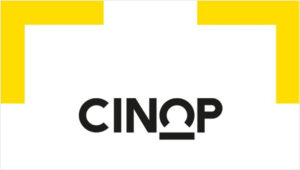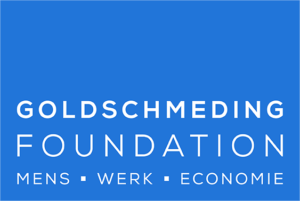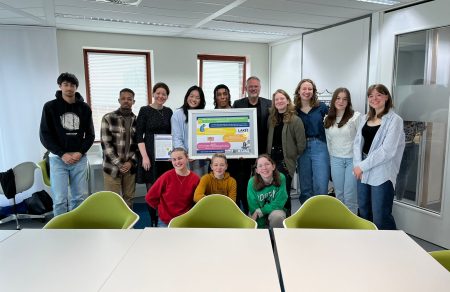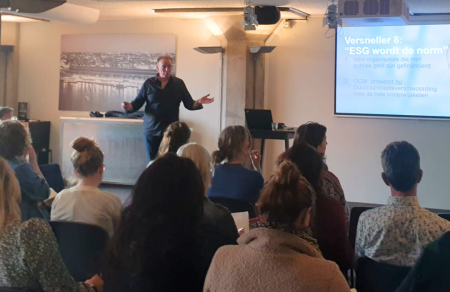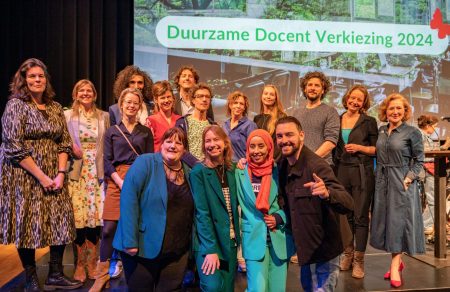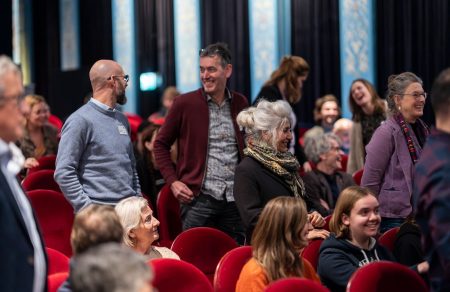Introduction
In the context of the global transition to sustainability, anchored in international treaties and national policies, (secondary vocational) education in the Netherlands takes center stage. Here, the focus is on sustainable development and achieving the Sustainable Development Goals (SDGs). The research report highlights the essential role of the SustainaBul MBO within this context.
The SustainaBul MBO is an initiative organized by Learning for Tomorrow, with the aim of stimulating and supporting educational institutions to achieve further sustainability in education. The SustainaBul MBO consists of both a network and a benchmark. The network, consisting of 36 MBO institutions, facilitates knowledge sharing and consultation. More than 75% of MBO students study at member institutions.* The annual benchmark, in which 26 MBO institutions participated between 2019 and 2023 (representing 42% of the total number of MBO students), evaluates sustainability implementation through a questionnaire based on four themes: education, practice, operations, and integral approach. These themes are based on the Whole School Approach (WSA).** The scoring, based on cooperative ranking, is based on submitted responses, explanations, and evidence. The results categorize institutions as leaders, accelerators or newcomers based on points achieved.
* Calculated based on total number of college students in October 2022.
** Whole School Approach: https://lerenvoormorgen.org/whole-school-approach/.
Findings
The MBO institutions participating in the SustainaBul MBO (network and benchmark) can be seen as frontrunners: they show that they want to be engaged with subject matter and are also willing to have themselves assessed on this by other MBO institutions. The analyzed 16 MBO institutions achieve an average of 62% of the total number of attainable points in the benchmark, indicating a moderate to reasonable performance on implementing sustainability. Overall, a positive trend is visible in the points achieved by all institutions that have participated in the SustainaBul MBO benchmark multiple times. The trends show that the progress achieved by MBO institutions represents a more systemic embedding of their activities within the institution.
MBO institutions undertake activities mainly on the following two topics of the SustainaBul MBO: 'vision of education' and 'sustainability in the curriculum'. The Sustainable Development Goals and legal requirements appear to guide sustainability initiatives. On average, the least is done around the topic 'sustainability in internships'.
Realizing systemic changes in sustainable development within MBO institutions requires a multidimensional approach. Individual leaders, often faculty or staff, play a crucial role as drivers of sustainability initiatives. These individuals have the capacity to inspire and motivate their colleagues, managers and students. Importantly, however, leadership at the board and management level is also indispensable for embedding sustainability at the institutional level. The research highlights the need for support from leadership, both financial and strategic. Freeing up resources, creating time and space for initiatives, and setting clear goals and expectations are considered essential.
The interplay of bottom-up and top-down approaches leads to better integration of sustainable development at all levels within an MBO institution. By connecting individual initiatives and promoting central coordination, sustainability can become less dependent on individuals and become an integral part of the institution's mission and culture.
The findings of this study highlight that although there is an increase in sustainability activities at institutions participating in the SustainaBul MBO, sustainable development is not yet fully integrated within MBO institutions. It highlights the importance of tools such as the SustainaBul MBO as an incentive to promote and strengthen sustainability efforts. The SustainaBul provides insight, encourages improvements and acts as a powerful tool to map sustainability initiatives. The competitive element motivates board and management, while the network provides crucial opportunities for exchange and learning between institutions. The SustainaBul MBO thus contributes to promoting sustainability at various levels within institutions.
Recommendations
It is recommended for national and regional governments to actively support MBO institutions by providing both financial and strategic support for sustainability initiatives. In addition, they should create policy frameworks that promote sustainable development within the MBO.
For boards and management of MBO institutions, it is crucial to develop a powerful vision of sustainability and to translate it concretely into practice. Setting up a practorate around sustainability or appointing a sustainability coordinator can also be valuable. It is essential to appreciate and reward pioneers in sustainability, and to provide sufficient resources for faculty and staff with sustainable ideas. In addition, professionalizing staff on sustainability and increasing awareness within the institution is key. Participation in initiatives such as the SustainaBul MBO offers valuable insights and can serve as a source for further development in the field of sustainable development.
For a detailed account of all results and recommendations for various target groups, please see the full research report.
Download the report